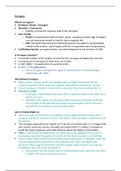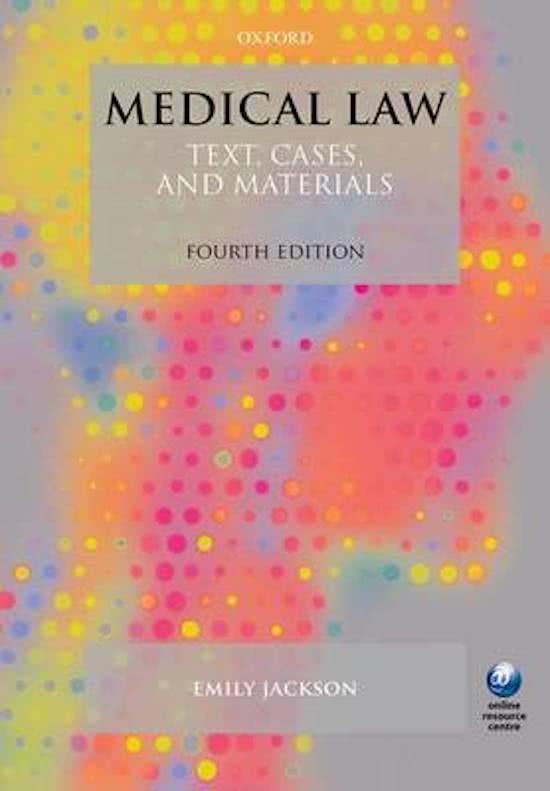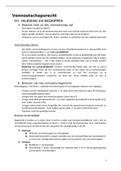Summary
Summary Medical Law - Surrogacy
- Module
- Institution
- Book
Comprehensive and detailed medical law notes that I used to prepare for my Medical Law exam, achieving 2.1 in Medical Law and a first class honours overall. This document sets out the key principles and cases, core and further reading material notes, notes on class discussions and points of eva...
[Show more]









